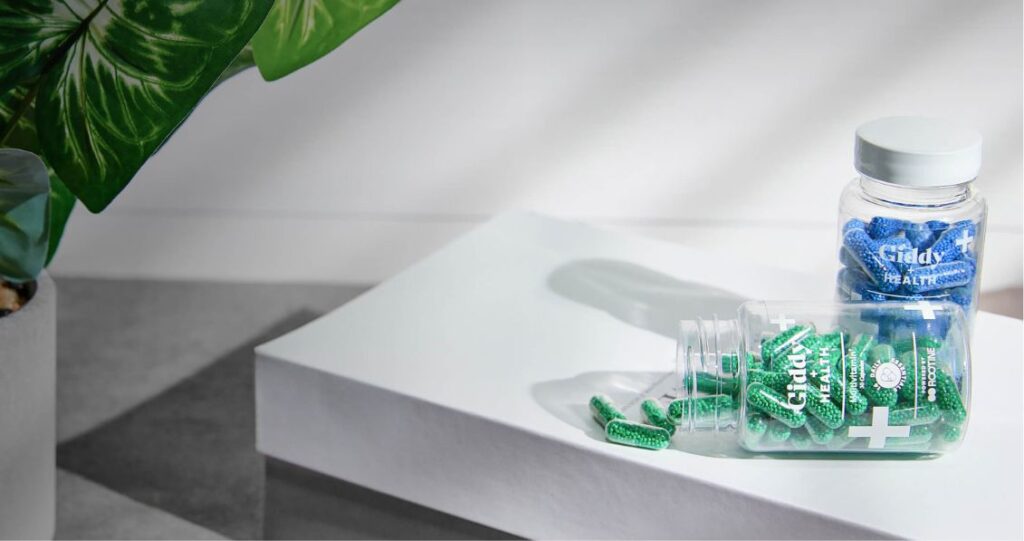
Yes, you’ve probably heard about those two, but are you aware that the actual cause of prostate cancer and prostate enlargement is unknown? It’s pretty scary to think that despite science’s breakthroughs within the past years, we still don’t know what causes these and many other health issues. Fortunately, we know that there are lifestyle choices we can take and chemical-free, safe supplements that we can rely on to decrease the risk of these two conditions.
Before discussing prevention, let’s understand what we’re dealing with and what’s at stake.

Are men prone to prostate cancer based on genes and family history?
Any man, regardless of race, status, or lifestyle, can, at any point in his life, be diagnosed with prostate cancer, so it is vital to clarify that no one should ignore this possibility. All men should get checked at least every 2 years.
That being said men can get a sense of urgency by understanding the following risk factors.
- It’s incredible how many obese people sometimes seem to be in better shape than folks who are thin or physically fit. You see them surfing in Australia, playing tennis, running a 5k, etc. Even though obese men can sometimes have a strong heart, the dangers of obesity can show up elsewhere. There are undoubtedly mixed studies, but it is a fact that prostate cancer can be more aggressive and more likely to happen amongst obese men.
- As it was mentioned before, every man, regardless of race, should get checked for prostate cancer. That being said, black men are, in fact, 1.7 times more likely to get diagnosed, although not necessarily because of genetics but due to socioeconomic status. There are several studies about the subject, but if you are or know someone who is black or mixed, please make sure to make the matter that much more important.
- As stated by the Oxford Academic Journal of the National Cancer Institute, “American and European clinical guidelines recommend men with a family history of prostate cancer to obtain prostate-specific antigen (PSA) testing from age 40 to 50 years. The recommendations are based on epidemiological studies showing a two- to five-fold increased relative risk of prostate cancer for these men“.
Despite several connections to a man’s risk of prostate cancer, the older range remains the most relevant, with 45 to 50 years of age being the earliest to start getting checked.

“Practice a healthy lifestyle, visit your doctor, be aware of how you feel, eat well, and support your immune system as needed.”

Does a man’s lifestyle have any say on prostate enlargement?
A healthy, wholesome, and stress-free lifestyle has been linked to healthy prostates, so taking a step back and looking into how you, as a man or the men in your life, live their day-to-day is as important as genetics, race, and family history.
Keep in mind that there’s also benign prostate enlargement, so be sure to learn more about it here. Now, keeping in mind the worst-case scenario, there are lifestyle choices men can make to decrease their chances of prostate enlargement (which can also lead to cancer) altogether.
- What you put inside your body is what your body will bring back out. I believe that not doing what makes you happy is worse than doing something good that doesn’t make you happy. So, don’t restrain yourself from your favorite meals, but try to stay balanced. Eating a consistently unhealthy diet will lead nowhere good. Be sure to keep “cheat meals” to the lowest you can (even if it’s a slow transition) while eating more vegetables and reducing consumption of red meats.
- As important as exercise is, when talking about the prostate, it doesn’t come down to looking fit, being strong, or having muscles, but to maintaining a healthy weight. As mentioned before, a high BMI can increase the chances of prostate issues, so a nutritious diet, together with physical activity, can decrease your chances of having to deal with an enlarged prostate.
- Have you heard of mixing cucumber slices with 8oz of water, ¼ teaspoon of pink Himalayan salt, and half a lemon? It is a simple yet incredible hydrating drink full of electrolytes you can make at home. Drinking it first thing in the morning after you wake up is often recommended. Staying hydrated is a crucial part of the lifestyle to prevent prostate issues. Water alone can be enough to keep hydrated for some people. Still, chronic dehydration, a reality amongst humans in our world, can only be fought by staying on top of electrolyte consumption. Drinks like the example above are also great for keeping your body’s pH well balanced, which can lower the risk of cancer. You may also be thinking about sports drinks, which claim to be a great source of electrolytes. They’re good regarding electrolytes and hydration but the worst when it comes to sugar levels. So, try to opt for natural hydration.
- Stress is often known as “the silent killer.” Even though we can’t see it per se and often find it hard to acknowledge, if present, it can contribute to increasing our chances of health complications. Managing stress by adding simple practices into our lives, such as meditating for 10 minutes everyday, or practicing deep breathing, can go a long way to preventing prostate issues.
- Don’t smoke – it needs no further explanation.


Supporting prostate function, promoting healthy antioxidants, and improving urinary flow with Microbeads
Saw Palmetto, Stinging Nettle, and Pygeum are natural sources known to help with all these, ultimately increasing the chances of preventing prostate issues.
- By improving DHT and PSA levels, Saw Palmetto supports prostate function.
- Stinging Nettle promotes healthy antioxidant levels by reducing prostate inflammation and C-reactive protein levels.
- By reducing nocturnal urination, Pygeum improves urinary functions.
Together with a cocktail of multivitamins and thanks to the innovative microbeads vitamin technology, Giddy® provides a steady flow of essential nutrients throughout the day. The key difference between Microbeads and pills, powders, and other capsules is that the latter can be inconsistent or too rapid with their nutrient distribution. Microbeads, on the other hand, allow for optimal absorption of nutrients over a 6+ hour release period.
Whether you or the men in your life are 18, 30, 50, or 60 years old, everyone should keep the words “prostate health” vivid in their thoughts. It is widespread to not care about the prostate until it’s too late due to a variety of reasons, such as poor education on the subject or simple fear of tests involved in prostate cancer and prostate enlargement prevention.










